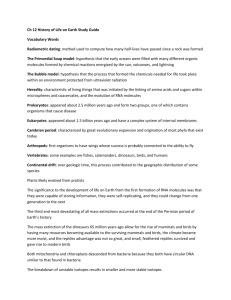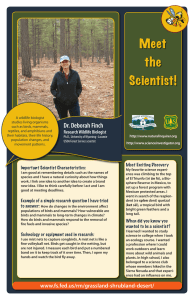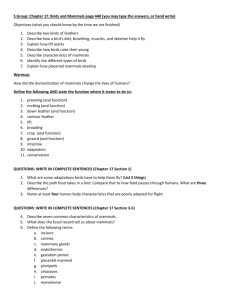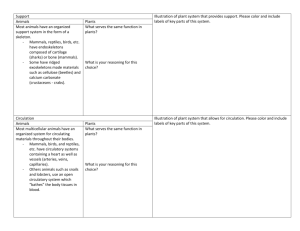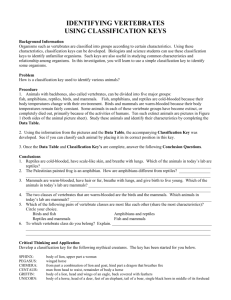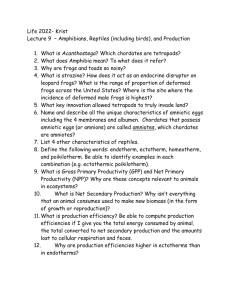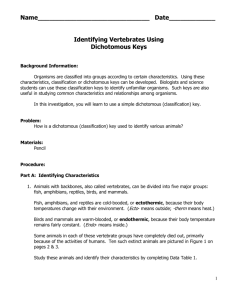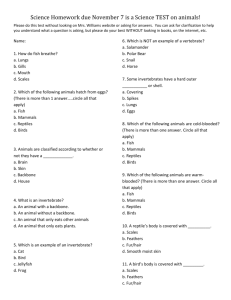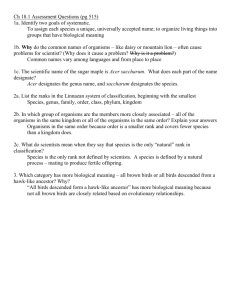TLW 7e Chapter 15 Answers
advertisement
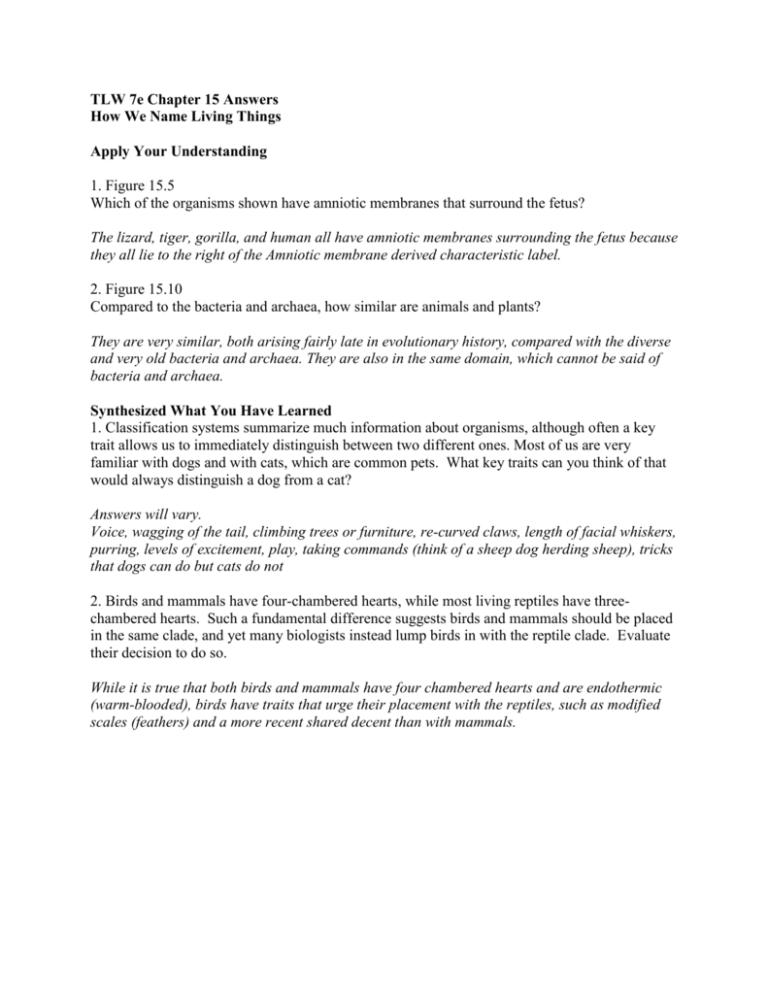
TLW 7e Chapter 15 Answers How We Name Living Things Apply Your Understanding 1. Figure 15.5 Which of the organisms shown have amniotic membranes that surround the fetus? The lizard, tiger, gorilla, and human all have amniotic membranes surrounding the fetus because they all lie to the right of the Amniotic membrane derived characteristic label. 2. Figure 15.10 Compared to the bacteria and archaea, how similar are animals and plants? They are very similar, both arising fairly late in evolutionary history, compared with the diverse and very old bacteria and archaea. They are also in the same domain, which cannot be said of bacteria and archaea. Synthesized What You Have Learned 1. Classification systems summarize much information about organisms, although often a key trait allows us to immediately distinguish between two different ones. Most of us are very familiar with dogs and with cats, which are common pets. What key traits can you think of that would always distinguish a dog from a cat? Answers will vary. Voice, wagging of the tail, climbing trees or furniture, re-curved claws, length of facial whiskers, purring, levels of excitement, play, taking commands (think of a sheep dog herding sheep), tricks that dogs can do but cats do not 2. Birds and mammals have four-chambered hearts, while most living reptiles have threechambered hearts. Such a fundamental difference suggests birds and mammals should be placed in the same clade, and yet many biologists instead lump birds in with the reptile clade. Evaluate their decision to do so. While it is true that both birds and mammals have four chambered hearts and are endothermic (warm-blooded), birds have traits that urge their placement with the reptiles, such as modified scales (feathers) and a more recent shared decent than with mammals.
